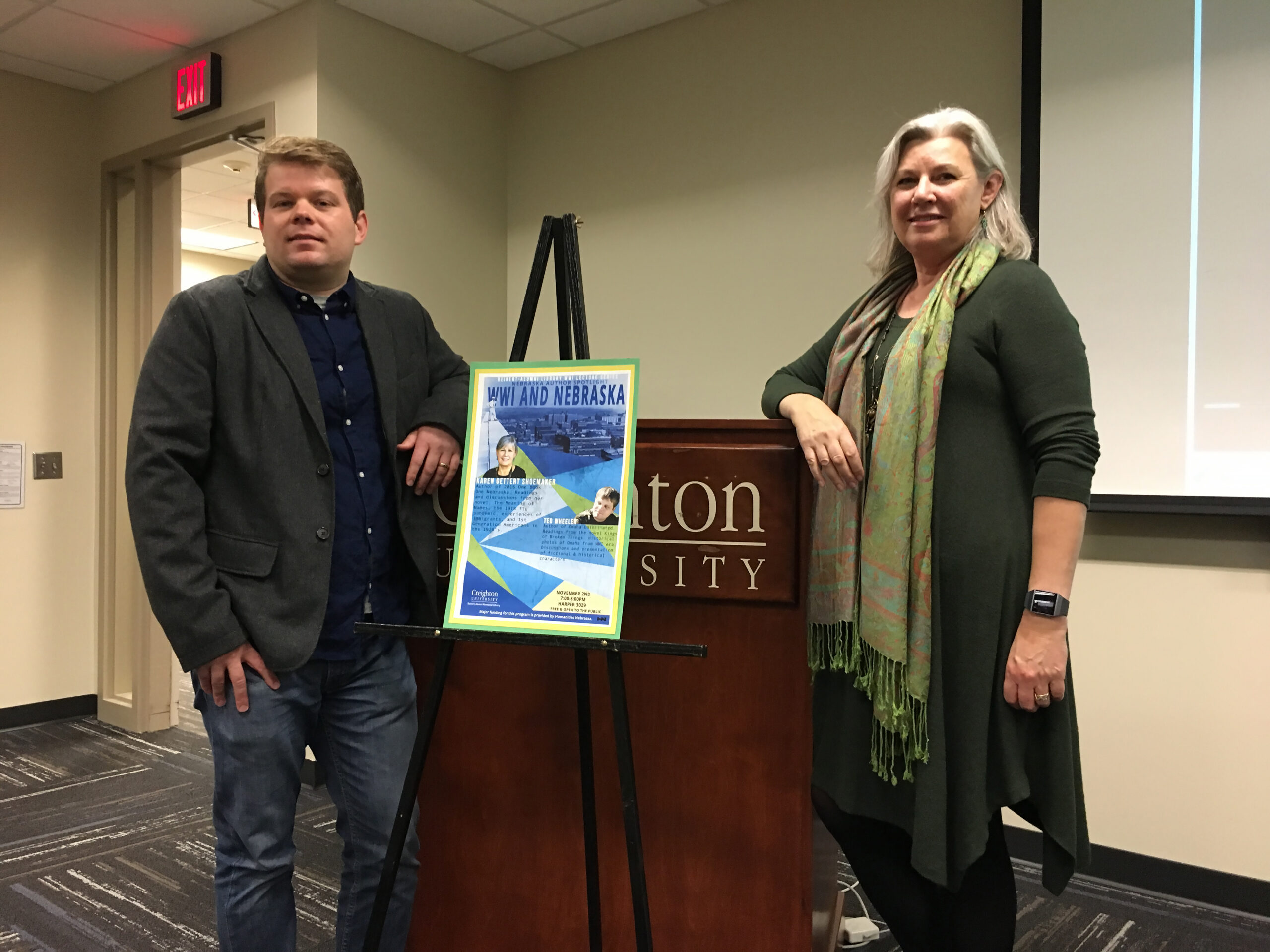Stories of conflict, violence and racial prejudice on the home front during World War I were the subject of two novels presented by Nebraska authors Karen Gettert Shoemaker and Theodore Wheeler on Nov. 2, as part of the Reinert-Alumni Memorial Library WWI Centenary Commemoration Lecture Series.
“The story of violence against immigrants, we could pick up a paper today because it’s happening again,” said Shoemaker, who’s book “The Meaning of Names” tells the pseudo-biographical story of her grandmother’s birth in Nebraska during a time of anti-German sentiment and a global flu epidemic.
Wheeler’s book, “Kings of Broken Things,” blends fiction and fact with a story that includes fictional German immigrants and Will Brown, a real-life victim of a lynch mob and subject of a dark chapter in Omaha’s history of race and injustice.
“Everybody had a theory about who he was,” said Wheeler of Brown, as he read an excerpt from his book.
Shoemaker and Wheeler presented on novels that bridge the gap between global events surrounding World War I and their impact on local communities. The real accounts of violence and racial intolerance they shared was a bridge of another kind according to audience members, connecting the events of 100 years prior to today’s issues.
“History recycles itself,” said James McFarland, noting the continued relevance of the themes addressed.
“I like that they’re bringing the global story to a local level” said Debra Sturges, head librarian of the Reinert-Alumni and Health Sciences libraries.
Between the presentations, Sturges took a moment to briefly share the story of Creighton University’s own brush with the wartime flu epidemic of 1918, which figures so prominently in Shoemaker’s novel.
“Everywhere the death toll was high,” said Sturges, reading from a 1943 edition of the Creightonian. “Men dropped like autumn leaves in that fateful October of 1918. Of the several hundreds who were seized, not one single student of Creighton succumbed to the plague.”
Out of gratitude for being spared from the flu, Creighton had a statue of Christ commissioned to commemorate the event. The inscription on the statue reads “Thank Offering of the Students for Protection in the World-Wide Plague of the War Year 1918,” and stands today in the Jesuit Gardens just behind St. John’s Church.
The evening was funded in part by Humanities Nebraska, which helped to bring Shoemaker onto campus. The WWI Lecture Series is ongoing and will continue until the centenary of the War’s end.
“The Meaning of Names” and “Kings of Broken Things” are both part of the Reinert-Alumni Memorial Library collection.
